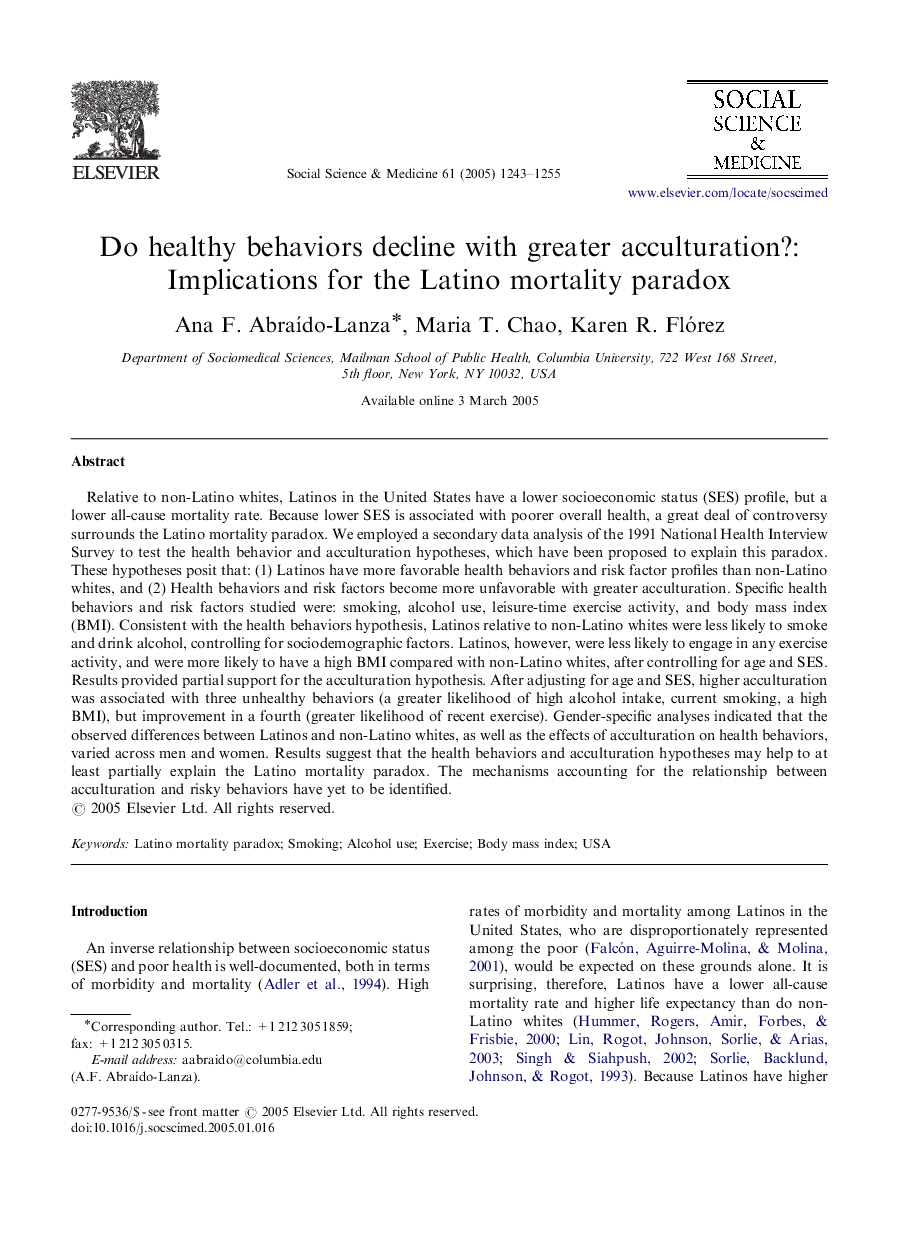| Article ID | Journal | Published Year | Pages | File Type |
|---|---|---|---|---|
| 10472479 | Social Science & Medicine | 2005 | 13 Pages |
Abstract
Relative to non-Latino whites, Latinos in the United States have a lower socioeconomic status (SES) profile, but a lower all-cause mortality rate. Because lower SES is associated with poorer overall health, a great deal of controversy surrounds the Latino mortality paradox. We employed a secondary data analysis of the 1991 National Health Interview Survey to test the health behavior and acculturation hypotheses, which have been proposed to explain this paradox. These hypotheses posit that: (1) Latinos have more favorable health behaviors and risk factor profiles than non-Latino whites, and (2) Health behaviors and risk factors become more unfavorable with greater acculturation. Specific health behaviors and risk factors studied were: smoking, alcohol use, leisure-time exercise activity, and body mass index (BMI). Consistent with the health behaviors hypothesis, Latinos relative to non-Latino whites were less likely to smoke and drink alcohol, controlling for sociodemographic factors. Latinos, however, were less likely to engage in any exercise activity, and were more likely to have a high BMI compared with non-Latino whites, after controlling for age and SES. Results provided partial support for the acculturation hypothesis. After adjusting for age and SES, higher acculturation was associated with three unhealthy behaviors (a greater likelihood of high alcohol intake, current smoking, a high BMI), but improvement in a fourth (greater likelihood of recent exercise). Gender-specific analyses indicated that the observed differences between Latinos and non-Latino whites, as well as the effects of acculturation on health behaviors, varied across men and women. Results suggest that the health behaviors and acculturation hypotheses may help to at least partially explain the Latino mortality paradox. The mechanisms accounting for the relationship between acculturation and risky behaviors have yet to be identified.
Related Topics
Health Sciences
Medicine and Dentistry
Public Health and Health Policy
Authors
Ana F. AbraÃdo-Lanza, Maria T. Chao, Karen R. Flórez,
